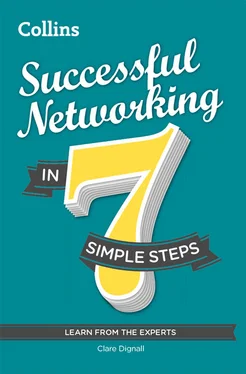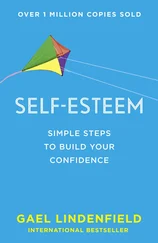Ask or answer questions: People like answering a question authoritatively: if you want a reaction from your social media network, ask a question! LinkedIn® has an answers feature where you can both ask and answer questions, giving you the opportunity to demonstrate your curiosity about business and showcase your knowledge to an interested audience.
Post comments or likes: Make personal contact quickly by commenting on someone’s status on Facebook or LinkedIn®. If you are pushed for time, even hitting ‘like’ or re-Tweeting will bring your name to the front of someone’s mind briefly, making them feel good about the fact you noticed.
Endorse: LinkedIn’s® endorsement function allows you to attest to a contact’s skills and expertise. Use this feature only to authenticate skills that are proven. By endorsing judiciously, everyone wins. Your contact builds a strong and verified skills profile, you give them a useful and appropriate ‘gift’, and everyone feels good about the transaction. Most people you endorse will also reciprocate in their own time.
Making social media work for, not against you, relies on having a strong awareness at all times of what you want people to see and what you don’t.
If you’re starting your own business, create a Facebook page for the business itself, entirely removed from your own page on Facebook. Then you can maintain two discrete accounts, promoting your professional image on your business page, while keeping your off-duty presence (and friends) private on your personal account. Keep these parts of your life separate – you don’t want clients to see you in a compromising snap. Furthermore, if and when you do create a Facebook account for your business or profession, check that your personal account is then private, meaning access to your photos and information is only available to those you’ve carefully accepted as friends. Bear in mind that some big companies now block the use of Facebook by staff – even remote staff. If Facebook is your main medium for social media business promotion, ensure that companies you hope to work with are keen on using Facebook.
Because you will aim to have followers on Twitter who are both personal and professional contacts, be careful what you write. Be positive. Never swear. If you are having a bad day, don’t Tweet about it. Negativity and cynicism can be a turn-off, and criticism of others can be dangerous. Read on for more information on social media and the law.
What makes a brand? Perhaps an important element is consistency: a strong brand creates clear associations in our minds. Stop anyone in the street and they could probably describe the core values of Coca Cola, Sony or Apple in a few words, and those very words would resemble those chosen by other people. But people are brands too. Consider celebrities: the more successful they are, the more they embody one core persona. You expect them to look and behave in a certain way. We feel comfortable when people are consistent, and harnessing this simple human preference for consistency can be a powerful tool in successful networking. We’ve seen in the preceding Steps that your face-to-face brand is extremely important, and you’ve been working hard to develop it. You also need to do the same with your online presence.
To take networking seriously you may have to work on your online brand; the brand that is you. ‘Google’ yourself on the Internet – it can be an eye opener. This is what a new contact could find if they wanted to do some background research on you. It’s up to you to start creating the picture you want to present: professional, positive and consistent.
Building your online brand
Creating an online brand sounds complicated, but it isn’t: it’s simply the process of ensuring that what people can find about you online is consistent with, and underlines, the persona you’ve worked hard to develop face to face. It’s checking that everything hangs together, and creates a holistic picture of someone trustworthy and professional.
Act on your Google results: Did you see anything up there that you wouldn’t want potential clients to see? If they’re within your control, take them down or lock them down to friends only. Negotiate with friends who’ve posted embarrassing snaps or posts about you. Use your judgement – everyone relaxes on holidays and nights out, so don’t become too obsessive. But if you’re portrayed breaking the law, bending rules, or playing hookie from work, remove this material.
Think of your social media as a suite: Scrutinize your LinkedIn® profile and posts, your Tweets, your Facebook activity, and your blog if you have one. Each of these media serve different purposes with different levels of formality, but underneath that, do you hear a core, consistent voice running through them? If not, you may need to spend more time considering how you want to come across, and keep this in the front of your mind every time you post, re-Tweet or upload. We’ll look at this in detail next.
Конец ознакомительного фрагмента.
Текст предоставлен ООО «ЛитРес».
Прочитайте эту книгу целиком, купив полную легальную версию на ЛитРес.
Безопасно оплатить книгу можно банковской картой Visa, MasterCard, Maestro, со счета мобильного телефона, с платежного терминала, в салоне МТС или Связной, через PayPal, WebMoney, Яндекс.Деньги, QIWI Кошелек, бонусными картами или другим удобным Вам способом.












